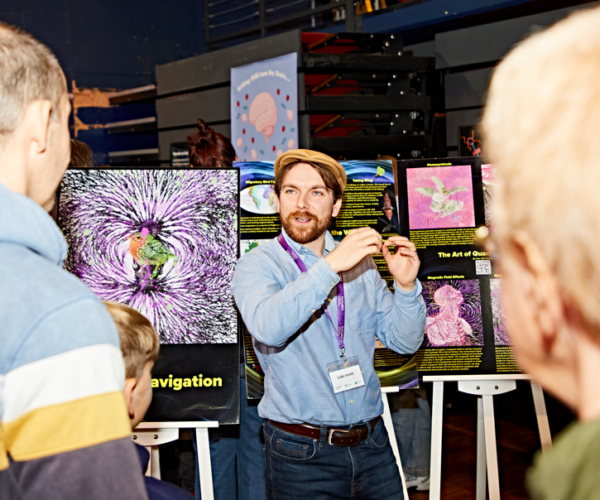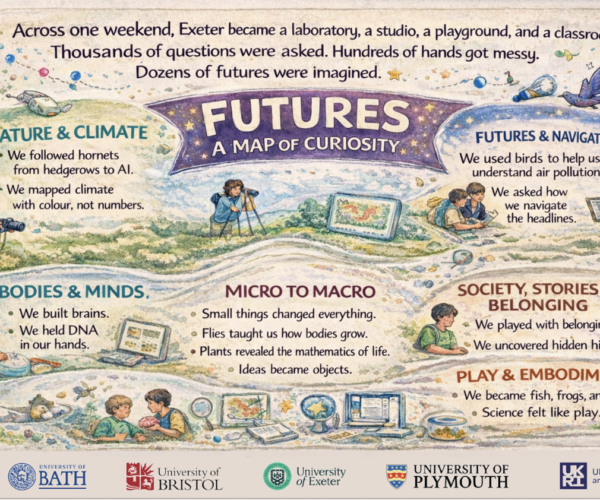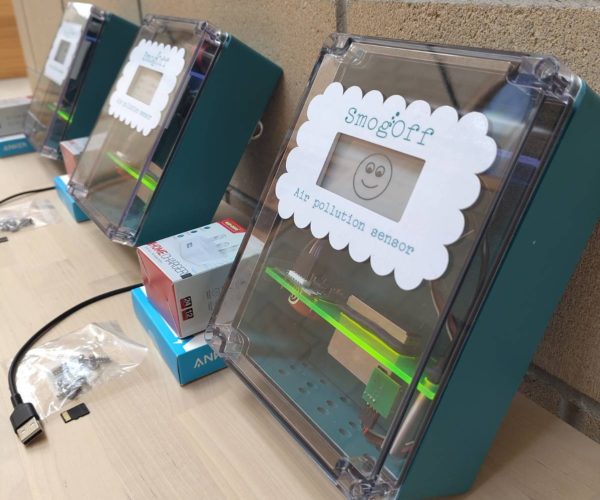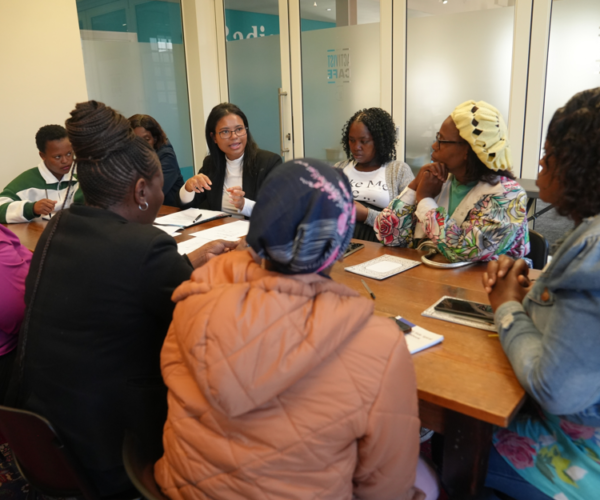Dr Luke Smith from the Department of Physics and Astronomy speaks to the public engagement team about how public engagement can be used to address misinformation and inspire new audiences, sharing his experiences of studying quantum biology and the future applications of this microscopic world.
Lifestyle interventions in the Muslim community to help prevent type 2 diabetes.
Dr Phil McBride reflects on a recent project which explored lifestyle interventions to combat type 2 diabetes in the Muslim community, benefitting from direct collaboration with community members through informal discussions supported by our Patient and Public Involvement and Engagement (PPIE) Fund.
How Art Brought Research to Life at FUTURES 2025
Central to the FUTURES Festival celebrations was the creation of new artwork, and encouraging visitors to explore their artistic side through walking tours, our craft zone, and workshops. Each of these activities worked with members of the local community to bring new voices into a variety of research disciplines.
SmogOff – Community Testing of Air Pollution
Dr Jo Garrett and the team from Then Try This share insights into their work on SmogOff, a project supported by Civic University Agreement funding to engage local communities with air quality monitoring, and encourage new understanding of air pollution and its impact on our local environments.
Community Connections: Informing Urban Liveability Research
Dr Federico Botta shares insights from his team’s collaboration with Exeter Science Centre, in which both parties sought to better understand Exeter residents’ views on urban liveability, supported by the 2024-25 Engaged and Participatory Research Fund.
Infrastructure Disruptions, Resilience and Economic Mobility in the Off-Grid City
Professor Federico Caprotti and Dr Whitney Pailman share updates on their work exploring the relationship between community resilience, entrepreneurship, economic mobility and navigating infrastructure disruptions in urban, informal settlements in South Africa. With support from the Engaged and Participatory Research Fund, the researchers worked closely with local residents and policymakers.
Understanding Uncertainty – Involving People with Lived Experience in Research into Medical Communication and Decision Making
In her blog piece, Amy Chinner-Evans draws on recent Patient and Public Involvement and Engagement, which aimed to address uncertainty in medical decision-making. Working with patients with multiple long-term health conditions (MLTCs), her collaboration will inform ongoing research as part of her wider PhD programme.
PPIE Support for Parkinson’s UK Non-Drug Approaches Application
Dr Mary O’Leary shares the work behind her recent application to Parkinson’s UK, exploring how nutritional interventions can support aspects of Parkinson’s symptom management. Patient and Public Involvement and Engagement (PPIE) Funding helped ensure lived experience could be brought into this work, inviting collaboration throughout the research process.
Nothing About Us Without Us’: The Role of Public Perspectives in Health Research
In this recent interview, Dr Camilla Forbes from the Department of Health and Community Sciences shares information about her work in Patient and Public Involvement and Engagement (PPIE), highlighting the importance of engaging communities in research on health promotion and public health.
Bringing Academia to Different Communities: The Researchers in Churches Scheme
As part of the 2025 FUTURES Festival, our partners, Agile Rabbit, brought the celebrations to Cornwall as part of the Researchers in Churches scheme. This programme takes academia into a new setting, inviting members of the community to talks and conversations delivered in churches across the South West.










